This manual covers the full range of communicable diseases in the African region: skin infections, malaria and other vector-borne diseases, infections transmitted via contaminated food and water, tuberculosis and leprosy, diseases transmitted through animals, haemorrhagic fevers and severe acute respiratory illnesses. In this new edition HIV/AIDS has been covered as a chapter on its own. The authors have also included a new chapter titled Emerging and Re-emerging infections in which diseases such as Rift valley fever, Avian flu and Ebola have been discussed. The target for this book include students in medical training colleges, community health workers, nurses, clinical officers, public health officers, teachers of health workers and indeed all who are interested in and who want to learn about communicable diseases in Africa.
COMMUNICABLE DISEASES 4th edition
KSh 3,000.00
This manual covers the full range of communicable diseases in the African region: skin infections, malaria and other vector-borne diseases, infections transmitted via contaminated food and water, tuberculosis and leprosy, diseases transmitted through animals, haemorrhagic fevers and severe acute respiratory illnesses. In this new edition HIV/AIDS has been covered as a chapter on its own. The authors have also included a new chapter titled Emerging and Re-emerging infections in which diseases such as Rift valley fever, Avian flu and Ebola have been discussed. The target for this book include students in medical training colleges, community health workers, nurses, clinical officers, public health officers, teachers of health workers and indeed all who are interested in and who want to learn about communicable diseases in Africa.
Related products
-
Myles Textbook for Midwives, International Edition, 17th Edition
KSh 5,642.00Written by midwives for midwives, Myles Textbook for Midwives has been the seminal textbook of midwifery for over 60 years. It offers comprehensive coverage of topics fundamental to 21st midwifery practice. Co-edited for the second time, by internationally renowned midwife educationalists, Professor Jayne E Marshall and Maureen D Raynor from the United Kingdom with a team of contributors from across the midwifery community it retains its clear, accessible writing style. Most chapters provide useful case studies, websites of key organisations and charities for individuals to access further information. Reflective questions at the end of each chapter as well as annotated further reading aid reflective learning and stimulate discussions relating to continuing professional development.
Key Features-
- The book covers key frameworks that govern midwifery practice, exploring ethical and legal frameworks that are essential to every accountable, autonomous, professional midwife.
-
- Includes employer-led models of supervision, vital elements of leadership and clinical governance that supports the provision of high quality maternity services and standards of midwifery practice.
-
- The concept of resilience is introduced for the reader to contemplate their personal contribution in creating an environment that is conducive to protecting the wellbeing of themselves and colleagues within the workplace.
-
- The text covers the UN 2030 Agenda for Sustainable Development, highlighting the importance of midwives as global citizens with common goals, and together they form a strong global community prepared to challenge social inequalities and take action to help end extreme poverty.
-
- Covers designing and implementing high quality midwifery care using evidence, policy and models of care. Highlights why a holistic and evidence-informed approach is necessary to achieve effective care for all. Working examples will help the reader to think critically about their own practice.
-
- For this edition several new chapters are introduced covering concealed pregnancy, fear of childbirth (tocophobia), care of the acutely unwell woman and end of life issues including rights of the fetus/neonate and ethical considerations.
Author InformationEdited by Jayne E. Marshall, FRCM, PFHEA, PhD, MA, PGCEA, ADM, RM, RN, Foundation Professor of Midwifery and NMC Lead Midwife for Education, School of Allied Health Professions, College of Life Sciences, George Davies Centre, University of Leicester, UK and Maureen D. Raynor, MA PGCEA ADM RMN RN RM, Senior Lecturer (Midwifery), De Montfort University, Faculty of Health and Life Sciences, School of Nursing and Midwifery, Leicester, UK -
-
Pocket book of hospital care for children
KSh 3,640.00This is the second edition of the Pocket book of hospital care for children. It is for use by doctors, nurses and other health workers who are responsible for the care of young children at the first level referral hospitals. The Pocket Book is one of a series of documents and tools that support the Integrated Management of Childhood Illness (IMCI). It is an update of the 2005 edition, and presents up-to-date evidence based clinical guidelines from several recently updated and published WHO guidelines and recommendations. The guidelines are for use in both inpatient and outpatient care in hospitals with basic laboratory facilities and essential medicines. These guidelines focus on the management of the major causes of childhood mortality in most developing countries, such as newborn problems, pneumonia, diarrhoea, malaria, meningitis, septicaemia, measles and related conditions, severe acute malnutrition and paediatric HIV/AIDS. It also covers common procedures, patient monitoring and supportive care on the wards and some common surgical conditions that can be managed in small hospitals.
Details of the evidence on which the Pocket Book is based can be found on the WHO website from the relevant published guidelines provided in the bibliography. This bedside paediatric care guidelines are applicable in most areas of the world and may be adapted to suit country specific circumstances. However, advanced and high care treatment options, such as intensive care or mechanical ventilation, are not described. The Pocket Book is also available in hard copies although the online version will be updated regularly as new evidence emerges.
-
Study Guide for Foundations of Nursing, 9th Edition
KSh 7,280.00Reinforce your understanding of LPN/LVN nursing skills — and prepare for the NCLEX-PN® exam! Corresponding to the chapters in Foundations of Nursing, 9th Edition, this study guide provides a variety of exercises to help you review, practice, and apply nursing concepts and principles. Review questions make it easier to achieve the chapter objectives from the textbook, and critical thinking activities help you develop clinical judgment skills. Now with Next Generation NCLEX® (NGN)-style case studies and questions, this guide provides you with an effective study tool for the NGN exam.
-
Myles Textbook for Midwives African Edition, 3rd Edition
KSh 4,914.00The edition of this seminal textbook, Myles Textbook for Midwives, has been extensively revised and restructured to ensure that it reflects current midwifery practice, with an increased focus on topics that are fundamental to midwifery practice today. The book comes with Elsevier EVOLVE ancillaries – an online learning package which consists of 500 self-assessment questions and answers and a fully downloadable image bank.
- Designed to enable midwifery practitioners to provide safe and competent care, which is tailored to the patient’s individual needs
- Extensively illustrated to assist visual learning with additional ‘pull out’ textboxes to highlight key information
- Streamlined chapters with similar themes and approach help consolidate learning
- Reflects all modern midwifery curricula by presenting a strong emphasis on evidenced-based practice and the use of technology
- Over 500 on-line multiple-choice questions to enable readers to test their knowledge
- Offers a full image bank of downloadable illustrations to assist with personal projects and/or further learning
- References, Further Reading and Useful Websites promote further learning
- Glossary of Terms and Acronyms provide simple definitions of more complex terminologies
- Full colour illustrations now used throughout the book, in response to student feedback
- Contains many new chapters, some of which are authored by members of the multi-professional team
- Up-to-date guidance on professional regulation, midwifery supervision, legal and ethical issues, risk management and clinical governance
- Recognition that midwives increasingly care for women with complex health needs, in a multicultural society
- Examination of the dilemmas involved in caring for women with a raised body mass index
- Chapter on optimising care of the perineum for women with perineal trauma, including those who have experienced female genital mutilation
- Guidance to support the trend for midwives to undertake the neonatal physical examination of the healthy term infant
- Additional coverage of basic neonatal resuscitation
-
Handbook of Health Research Methods: Investigation, Measurement and Analysis 1st Edition
KSh 7,278.00This handbook helps researchers to plan, carry out, and analyse health research, and evaluate the quality of research studies. The book takes a multidisciplinary approach to enable researchers from different disciplines to work side-by-side in the investigation of population health, the evaluation of health care, and in health care delivery.
Handbook of Health Research Methods is an essential tool for researchers and postgraduate students taking masters courses, or undertaking doctoral programmes, in health services evaluation, health sciences, health management, public health, nursing, sociology, socio-biology, medicine and epidemiology. However, the book also appeals to health professionals who wish to broaden their knowledge of research methods in order to make effective policy and practice decisions.
Contributors: Joy Adamson, Geraldine Barrett, Jane P. Biddulph, Ann Bowling, Sara Brookes, Jackie Brown, Simon Carter, Michel P. Coleman, Paul Cullinan, George Davey Smith, Paul Dieppe, Jenny Donovan, Craig Duncan, Shah Ebrahim, Vikki Entwistle, Clare Harries, Lesley Henderson, Kelvyn Jones, Olga Kostopoulou, Sarah J. Lewis, Richard Martin, Martin McKee, Graham Moon, Ellen Nolte, Alan O’Rourke, Ann Oakley, Tim Peters, Tina Ramkalawan, Caroline Sanders, Mary Shaw, Andrew Steptoe, Jonathan Sterne, Anne Stiggelbout, S.V. Subramanian, Kate Tilling, Liz Twigg, Suzanne Wait.
-
Mcrae’s Orthopaedic Trauma and Emergency Fracture Management 3rd edition
KSh 4,999.00This book is derived from Ronald McRae’s Pocketbook of Orthopaedics and Fractures, a highly successful ‘survival guide’ for the trainee working in accident and emergency or orthopaedic departments. Retaining the underlying principles of the original editions this comprehensive rewrite and re-presentation provides complete coverage of orthopaedic trauma surgery as relevant to contemporary practice.
-
Student Workbook for Essentials of Dental Assisting, 7th Edition
KSh 7,685.00Reinforce your understanding of dental assisting concepts and practice essential skills! With chapters corresponding to the chapters in Essentials of Dental Assisting, 7th Edition, this student workbook provides a variety of exercises and activities to help you master the role and responsibilities of the dental assistant. Learning activities include review questions, competency sheets, and handy flashcards, each applying your knowledge to preclinical and clinical procedures. It’s an ideal study tool to use in dental assisting courses and to prepare for national board and state certification exams!
-
Nelson Textbook of Pediatrics_vol 1
KSh 12,000.00The worlds most trusted pediatrics resource continues to provide the most authoritative coverage of the best approaches to care in this streamlined new edition. With two new editors, extensive updates, and expanded online features, youll have the well-rounded, up-to-date guidance you need to offer your patients the very best. ? Stay current on recent developments and hot topics such as melamine poisoning, long-term mechanical ventilation in the acutely ill child, sexual identity and adolescent homosexuality, age-specific behavior disturbances, and psychosis associated with epilepsy. ? Tap into substantially enhanced content with world-leading clinical and research expertise from two new editors Joseph W. St. Geme III, MD, and Nina F. Schor, MD, PhD who contribute on key subspecialties, including pediatric infectious disease and pediatric neurology. ? Manage the transition to adult healthcare for children with chronic diseases through discussions of the overall health needs of patients with congenital heart defects, diabetes, and cystic fibrosis. ? Recognize, diagnose, and manage genetic conditions more effectively using an expanded section that covers these diseases, disorders, and syndromes extensively.

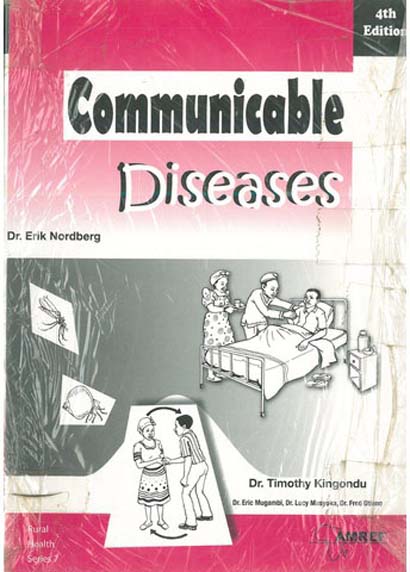
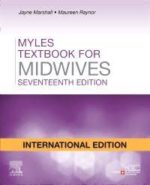
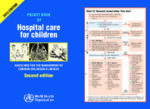
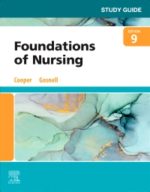
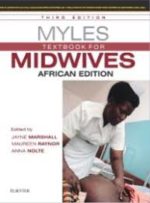
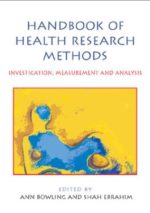


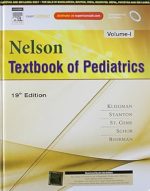
Be the first to review “COMMUNICABLE DISEASES 4th edition”